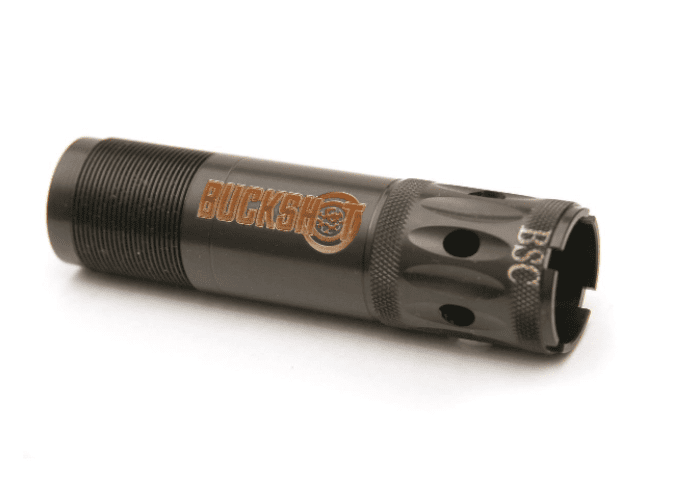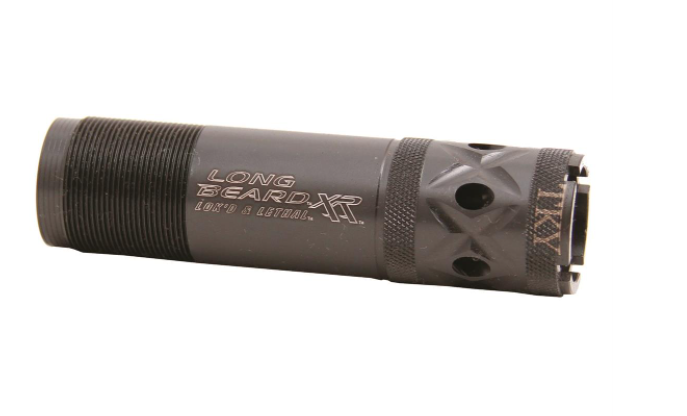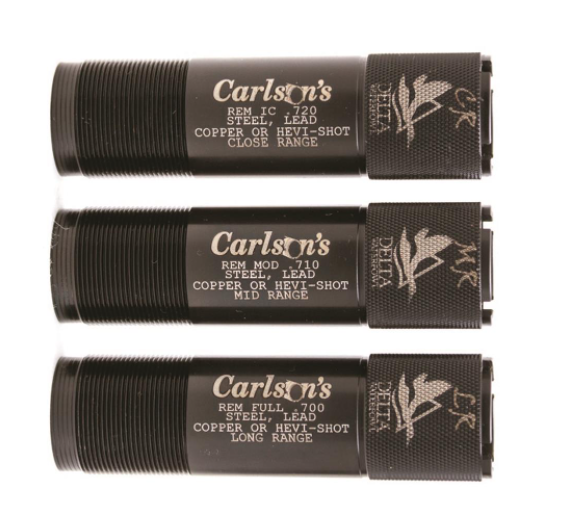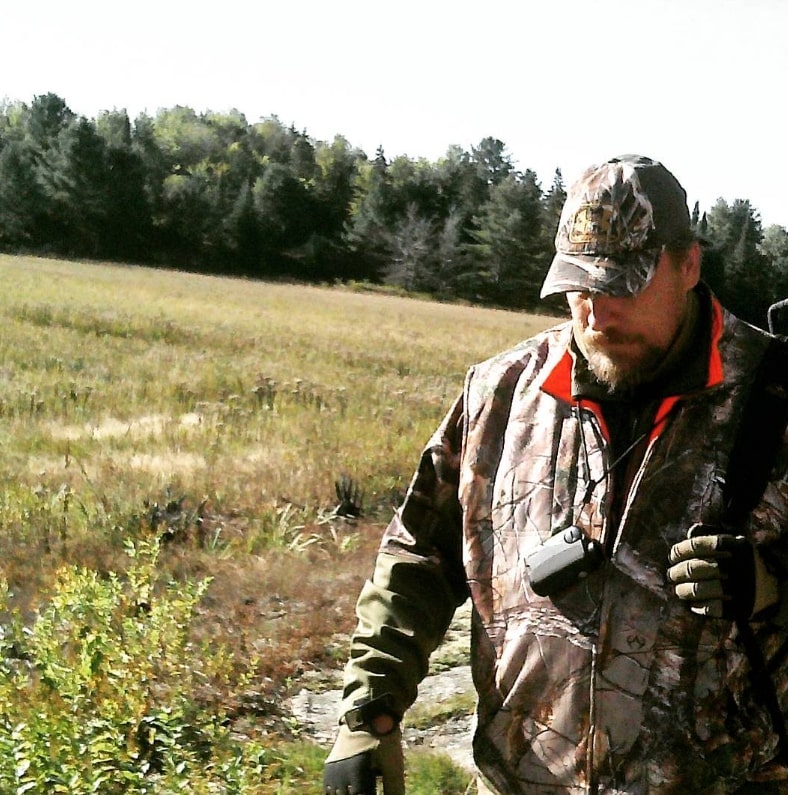Best Shotgun Choke for Hunting Wild Turkey



Introduction
When it comes to hunting wild turkey, choosing the right shotgun choke can make all the difference. In this guide, we’ll delve into the various types of shotgun chokes and help you determine which one is the best fit for your turkey hunting adventures.

Understanding Shotgun Chokes
What is a Shotgun Choke?
At its core, a shotgun choke is a device that narrows or constricts the muzzle end of the shotgun barrel. This constriction plays a pivotal role in controlling the spread of the shot when fired. By modifying the shot pattern, chokes enable hunters to tailor their shotguns for specific hunting scenarios.
Importance of Choke in Shotguns
The choke serves as a crucial element in determining the effective range and pattern density of a shotgun. Different hunting situations demand different spreads, and the choke allows hunters to adapt their firearms accordingly. Understanding the dynamics of chokes is essential for optimizing accuracy and increasing the chances of a successful hunt.
Types of Shotgun Chokes
Shotgun chokes come in various types, each designated by a level of constriction. These types include:
- Cylinder Choke: This choke has no constriction, resulting in a wide shot pattern. It’s ideal for short-range shooting, making it suitable for home defense or shooting close-quarters game.
- Improved Cylinder (IC) Choke: Slightly more constriction than the Cylinder choke, the Improved Cylinder provides a broader pattern suitable for close to moderate ranges.
- Modified Choke: Striking a balance between the wide spread of Cylinder and the tighter pattern of Full chokes, Modified is a versatile choice for various hunting scenarios.
- Full Choke: Offering maximum constriction, the Full choke produces a tight pattern, making it suitable for longer ranges.
- Turkey Choke: Specifically designed for turkey hunting, this choke provides an ultra-tight pattern for increased accuracy at extended distances.

How Chokes Affect Shot Patterns
The degree of choke directly influences the shot pattern. A more constricted choke, like Full or Turkey, concentrates the shot, making it effective for longer distances. In contrast, a less constricted choke, such as Cylinder or Improved Cylinder, results in a wider spread, beneficial for close-range engagements.
Selecting the Right Choke for the Situation
The choice of choke depends on various factors, including the type of game, hunting environment, and desired shooting distance. Understanding these factors empowers hunters to make informed decisions when selecting the appropriate choke for their shotguns.
Experimentation and Fine-Tuning
Achieving the perfect balance between shot pattern density and range often requires some experimentation. Hunters should spend time on the range, testing different chokes with their preferred shot sizes to determine the optimal combination for their specific hunting needs.
Considerations for Different Game
Different types of game may require different choke selections. For example, while a Full choke might be ideal for waterfowl at longer ranges, a Modified choke could be more suitable for upland bird hunting. Understanding the specific requirements of the game being pursued enhances the hunter’s ability to make informed choke choices.
Comprehending shotgun chokes is integral to maximizing the effectiveness of your shotgun in the field. From understanding the basic types to selecting the right choke for different hunting scenarios, a nuanced understanding of chokes elevates your hunting experience and increases your chances of a successful harvest.
Choosing the Best Choke for Wild Turkey
Consider the Turkey’s Behavior
Wild turkeys are known for their unpredictable behavior, making it crucial to consider their habits when selecting a choke. Turkeys can be wary and elusive, requiring hunters to adapt their strategies. A choke that provides a balance between a tight pattern for longer distances and flexibility for close encounters is ideal for the varied behavior of wild turkeys.
Optimal Range for Wild Turkey
Understanding the optimal range for hunting wild turkey is fundamental in choke selection. Turkeys can be skittish, so having a choke that excels at moderate to longer ranges ensures you can take your shot confidently without spooking the birds.
Turkey Chokes: A Specialized Choice
Opting for a specialized turkey choke is often the best decision for dedicated turkey hunters. These chokes are designed with a super-tight constriction, resulting in a dense shot pattern. This concentration of pellets increases the likelihood of hitting vital areas, such as the head and neck, ensuring a clean and ethical harvest.
Shot Placement Considerations
Turkey hunting demands precision, as the vital areas are relatively small. A choke that provides a focused shot pattern is essential for accurate shot placement, especially when aiming for the turkey’s head and neck. Turkey chokes excel in this aspect, offering the precision needed for a successful hunt.
Adjusting for Terrain and Hunting Style
Wild turkey habitats vary, from dense forests to open fields. Considering the terrain you’ll be hunting in is crucial for choke selection. If you anticipate longer shots in open areas, a choke with tighter constriction might be preferred. Conversely, in dense woods, where shots are often closer, a more open choke could be advantageous.
Incorporating Turkey Call Techniques
Turkey calling is a common technique used by hunters to attract turkeys. The choke you choose should complement your calling strategy. If you’re relying on calls to bring turkeys closer, a choke that provides a more forgiving pattern at close ranges can be beneficial.
Shot Size and Pellet Density
The choice of shot size is intertwined with choke selection. Turkey chokes are optimized for specific shot sizes that strike a balance between pellet count and density. Understanding the characteristics of different shot sizes and how they interact with your chosen choke is essential for achieving effective results.
Testing and Fine-Tuning
Before heading into the field, it’s advisable to spend time on the shooting range testing your chosen choke with various shot sizes and loads. This experimentation allows you to fine-tune your setup, ensuring optimal performance when it matters most during the hunt.
Choosing the best choke for wild turkey hunting involves a thoughtful analysis of the turkey’s behavior, the optimal shooting range, and the specific requirements of your hunting environment. A specialized turkey choke, combined with considerations for shot placement and terrain, will significantly enhance your chances of a successful and rewarding turkey hunting experience.
Popular Shotgun Choke Brands
Leading Brands in the Market
Carlson’s Choke Tubes
Carlson’s Choke Tubes stands out as a frontrunner in the choke market. Renowned for their precision engineering, Carlson’s offers a diverse range of chokes catering to various hunting styles and preferences. Whether you’re pursuing waterfowl, upland game, or wild turkey, Carlson’s provides quality chokes that deliver consistent patterns.
Trulock Chokes
Trulock Chokes is another prominent player in the industry, known for its commitment to craftsmanship and innovation. Trulock offers a wide array of choke options, from standard designs to extended chokes, providing hunters with choices that suit their specific needs. The brand’s dedication to producing chokes with tight tolerances contributes to their reliability in the field.
Patternmaster Chokes
Patternmaster Chokes has gained a strong following, particularly among waterfowl hunters. Recognized for their patented wad-stripping technology, Patternmaster chokes enhance pattern density and reduce recoil. This innovation has made Patternmaster a go-to choice for those seeking superior performance in waterfowl and turkey hunting.
Briley Manufacturing
Briley Manufacturing has established itself as a premium brand, offering high-quality chokes that cater to both competitive shooters and avid hunters. With a focus on precision machining, Briley chokes provide consistent patterns, ensuring accuracy in various shooting scenarios. The brand’s commitment to craftsmanship has solidified its position in the market.
Primos Hunting
Primos Hunting, a well-known name in the hunting industry, extends its expertise to shotgun chokes. The brand emphasizes simplicity and effectiveness in its choke designs, making them accessible to a wide range of hunters. Primos chokes are celebrated for their reliability and ease of use, making them a popular choice among both novice and seasoned hunters.
Kick’s Industries
Kick’s Industries is synonymous with producing chokes that excel in performance. The brand’s chokes are recognized for their unique constrictions, contributing to tight and consistent shot patterns. Whether you’re pursuing game in dense cover or open fields, Kick’s Industries offers chokes suitable for diverse hunting environments.
Choosing the Right Brand for You
Selecting the best shotgun choke brand ultimately depends on your specific preferences, the type of game you hunt, and your preferred shooting style. Each brand brings its unique features to the table, so exploring and experimenting with different chokes from reputable brands will help you find the perfect fit for your shotgun.
The shotgun choke market boasts several reputable brands, each with its strengths and specialties. Whether you prioritize precision engineering, innovative technology, or simplicity, these leading brands offer a variety of options to enhance your shooting experience in the field.

Factors Influencing Choke Selection
Shot Size Matters
The choice of shot size is a fundamental factor influencing choke selection. Different game and hunting scenarios may require specific shot sizes. For instance, when hunting wild turkey, shot sizes #4, #5, and #6 are commonly recommended. Understanding the characteristics of each shot size and how they interact with the choke’s constriction is essential for achieving the desired shot pattern.
Material and Design
The material and design of a shotgun choke can significantly impact its performance. Stainless steel, titanium, and various alloys are commonly used materials, each offering its unique benefits. The design, including the shape and length of the choke, can influence pattern consistency and ease of installation. It’s essential to consider these factors when selecting a choke that aligns with your hunting preferences.
Adaptability to Different Terrains
The terrain in which you hunt plays a crucial role in choke selection. If you frequent dense woods or thick brush, a choke that provides a wider shot pattern might be advantageous for close encounters. Conversely, in open fields where longer shots are common, a choke with tighter constriction may be more suitable. Considering the adaptability of the choke to different terrains enhances your versatility in various hunting environments.
Hunting Style and Preferences
Your personal hunting style and preferences should also guide your choke selection. If you prefer stalking and getting up close to your prey, a more open choke may be preferable for quick and instinctive shots. On the other hand, if you often find yourself taking shots at longer distances, a choke with tighter constriction can help maintain a denser pattern for increased accuracy.
Environmental Conditions
Environmental factors such as weather conditions can influence choke performance. In adverse weather, like rain or heavy winds, a choke that maintains pattern integrity becomes crucial. Some chokes are designed to perform consistently even in challenging weather conditions, providing hunters with reliability in various situations.
Reviewing Manufacturer Recommendations
Each shotgun choke manufacturer may provide specific recommendations regarding shot sizes, loads, and optimal hunting scenarios for their products. Paying attention to these recommendations can offer valuable insights into how a particular choke is intended to perform. Manufacturers often conduct extensive testing to determine the optimal use cases for their chokes.
Budget Considerations
While not compromising on quality, considering your budget is a practical aspect of choke selection. Different brands and models come with varying price points, and understanding your budget constraints can help narrow down the options without sacrificing performance.
Feedback from Fellow Hunters
Seeking feedback from experienced hunters can be invaluable. Learning from the experiences of others who have used specific chokes in similar hunting scenarios can provide real-world insights into performance, reliability, and ease of use.
Experimentation and Range Testing
Finally, nothing beats hands-on experience. Spending time on the shooting range experimenting with different chokes, shot sizes, and loads allows you to fine-tune your setup. Range testing helps you understand how your chosen choke performs with your shotgun and ammunition, ensuring optimal results in the field.
A thoughtful consideration of shot size, material and design, adaptability to terrain, hunting style, environmental conditions, manufacturer recommendations, budget, and real-world feedback will collectively guide you toward selecting the ideal shotgun choke for your specific hunting requirements. Each factor plays a role in creating a well-rounded and effective shotgun setup tailored to your preferences and the demands of your hunting adventures.
Cleaning After Each Use
Regular cleaning is essential for maintaining the performance of your shotgun choke. After each use, residues from shotshells, powder, and wad materials can accumulate. Cleaning the choke helps prevent these residues from building up and potentially affecting the choke’s constriction and pattern consistency. A bore brush, solvent, and cleaning patches are essential tools for this task.
Use a Bore Brush and Solvent
To effectively clean your shotgun choke, use a bore brush specifically designed for your shotgun gauge. Apply a suitable solvent to break down fouling and residues. Brush the interior of the choke to remove any deposits. This process not only ensures a clean choke but also contributes to the overall maintenance of your shotgun barrel.
Avoiding Corrosion
Shotgun chokes, especially if made of metal, are susceptible to corrosion. After cleaning, ensure the choke is thoroughly dried to prevent moisture buildup. Applying a light coat of oil can help protect the choke from corrosion. This is particularly important if you store your shotgun for an extended period between hunting seasons.
Inspecting for Wear and Damage
Regular cleaning provides an opportunity to inspect your shotgun choke for any signs of wear or damage. Check for cracks, deformities, or irregularities in the choke’s interior. Any compromise in the choke’s structure can affect its performance and, in some cases, may pose safety concerns. If you notice any issues, it’s advisable to consult with a professional gunsmith.
Choosing the Right Cleaning Solvent
Selecting an appropriate cleaning solvent is crucial. The solvent should be effective in breaking down fouling and residues without causing harm to the choke’s material. Avoid using harsh chemicals that could potentially damage the choke or alter its properties. Consult the manufacturer’s recommendations for compatible cleaning solvents.
Storage Recommendations
Proper storage is a key aspect of choke care. When not in use, store your shotgun in a cool and dry environment. Avoid exposing it to extreme temperatures or humidity, as these conditions can contribute to corrosion. Additionally, store your shotgun with the choke removed to allow proper ventilation and reduce the risk of moisture retention.
Periodic Deep Cleaning
While regular after-use cleaning is crucial, consider performing a more thorough, deep cleaning periodically. This involves removing the choke from the barrel and cleaning both the choke and the barrel separately. It ensures a comprehensive removal of residues and fouling that may accumulate in areas that are harder to reach during routine cleaning.
Avoiding Abrasive Materials
When cleaning your shotgun choke, use soft materials to avoid abrasion. Abrasive tools can damage the interior of the choke, affecting its constriction and overall performance. Opt for cleaning patches, brushes, and tools specifically designed for shotgun maintenance to ensure gentle yet effective cleaning.
Consult Manufacturer Guidelines
Manufacturers often provide specific guidelines for cleaning and caring for their chokes. Familiarize yourself with these recommendations to ensure you follow best practices for maintaining your particular choke model. This information may include preferred cleaning methods, compatible solvents, and any unique care instructions.
Professional Maintenance
If you’re unsure about cleaning or encounter any issues, consider seeking professional maintenance. Gunsmiths have the expertise to inspect, clean, and address any potential problems with your shotgun choke. Professional maintenance ensures that your choke is in optimal condition for your next hunting expedition.
Regular cleaning and proper care are essential for the longevity and performance of your shotgun choke. By incorporating these practices into your routine, you not only maintain the effectiveness of your choke but also contribute to the overall health of your shotgun. A well-maintained choke enhances shot pattern consistency, ensuring reliability in the field.
Conclusion
Choosing the best shotgun choke for hunting wild turkey requires a thoughtful approach. Consider the behavior of your prey, the effective range of your shotgun, and the unique features of different chokes. Tailoring your choice to the specific conditions of your hunt will greatly enhance your chances of a successful turkey harvest.
FAQs
- Q: Can I use a Full choke for turkey hunting? A: While it’s possible, specialized turkey chokes are recommended for a tighter pattern at longer distances.
- Q: What shot size is ideal for wild turkey? A: Shot sizes #4, #5, and #6 are commonly used for turkey hunting, offering a balance between pellet count and stopping power.
- Q: How often should I clean my shotgun choke? A: Cleaning after each use is ideal, but at the very least, perform a thorough cleaning at the end of the hunting season.
- Q: Can I use a turkey choke for other types of hunting? A: While it’s designed for turkey hunting, a turkey choke can be effective for other close-range hunts.
- Q: Are extended chokes better than flush chokes? A: It depends on personal preference. Extended chokes offer easier removal, while flush chokes provide a sleeker profile.




